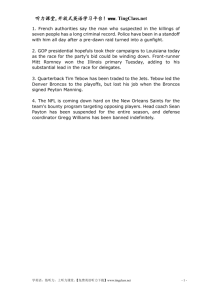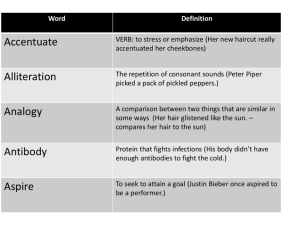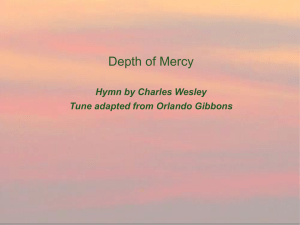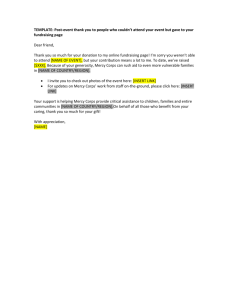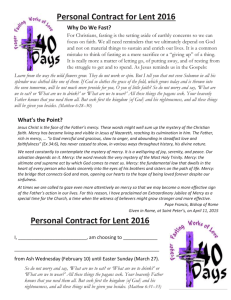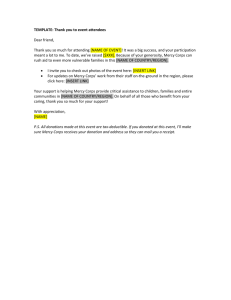4th Sunday in Lent March 18, 2012 5:30 PM Liturgy
advertisement
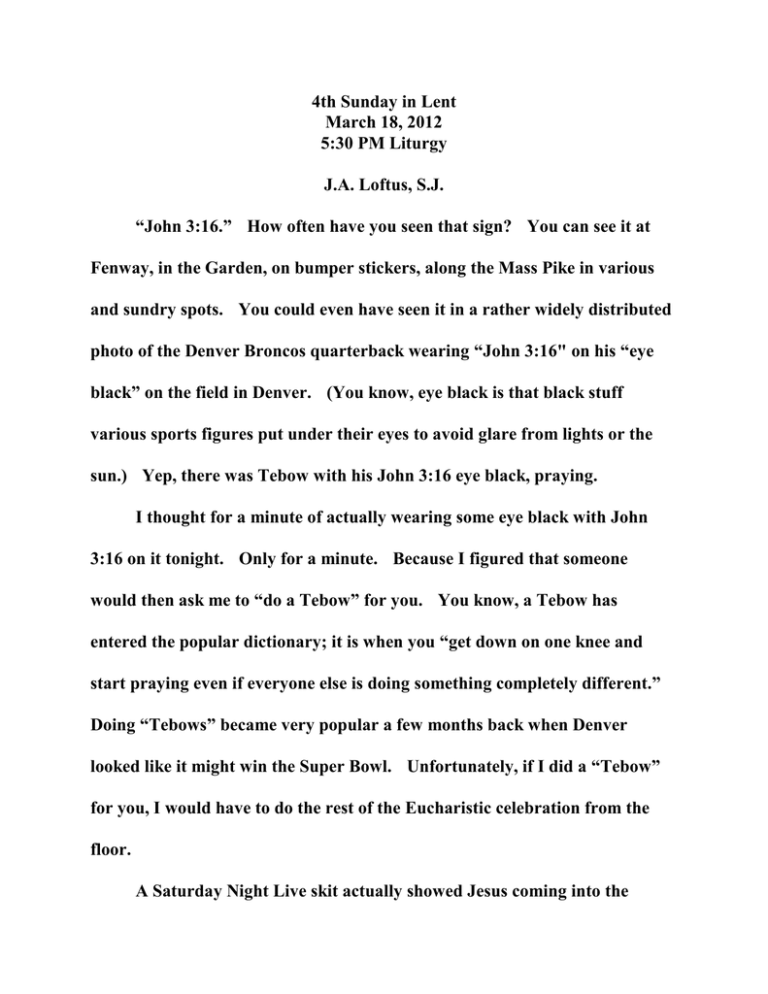
4th Sunday in Lent March 18, 2012 5:30 PM Liturgy J.A. Loftus, S.J. “John 3:16.” How often have you seen that sign? You can see it at Fenway, in the Garden, on bumper stickers, along the Mass Pike in various and sundry spots. You could even have seen it in a rather widely distributed photo of the Denver Broncos quarterback wearing “John 3:16" on his “eye black” on the field in Denver. (You know, eye black is that black stuff various sports figures put under their eyes to avoid glare from lights or the sun.) Yep, there was Tebow with his John 3:16 eye black, praying. I thought for a minute of actually wearing some eye black with John 3:16 on it tonight. Only for a minute. Because I figured that someone would then ask me to “do a Tebow” for you. You know, a Tebow has entered the popular dictionary; it is when you “get down on one knee and start praying even if everyone else is doing something completely different.” Doing “Tebows” became very popular a few months back when Denver looked like it might win the Super Bowl. Unfortunately, if I did a “Tebow” for you, I would have to do the rest of the Eucharistic celebration from the floor. A Saturday Night Live skit actually showed Jesus coming into the Broncos’ Locker room and suggesting that Tebow “take it down a notch.” Why mention all this today? Because we just heard the rather infamous line from John’s gospel proclaimed a minute ago. “For God so loved the world that he gave his only Son, so that everyone who believes in him might not perish but might have eternal life.” It is a beautiful sentiment. And it is true. But it does have a context too. Only a few lines later we hear John say: “And this is the verdict: that the light came into the world, but people preferred darkness to light, because their works were evil.” Ah, context is everything! You don’t see too many “John 3: 19" bumper stickers, do you? The message in all three readings today is about God’s extraordinary love and mercy. It is good news for us all! But there is also a rather blunt caution and invitation to us all as well. God’s love invites a response in the way we live our own lives: always has, always will. In the days recorded by the Book of Chronicles, we hear that “all the princes of Judah, the priests, and all the people added infidelity to infidelity, practicing all the abominations of the nations, and polluting the Lord’s temple....” Early and often the Lord reminded them of God’s love and mercy. But they were swept up into Babylon to weep by the streams as they 2 remembered God’s love in Zion (today’s beautiful Psalm 137). As an aside, notice that it is the strangest and most unlikely figure who will bring the Jews back to Zion. Cyrus, the pagan king of Persia, a complete stranger and foreigner to them becomes their champion. God’s mercy and love sometimes show themselves in strange ways. In the gospel another strange figure, one who is clearly frightened and timid yet fascinated and drawn, finally intervenes in support of Jesus and provides for his burial. His name is Nicodemus. Timid, shy and frightened, he too channels God’s love and mercy. Another aside. Only the letter to the Ephesians is completely one-sided. The author writes: “God, who is rich in mercy, because of the great love he had for us, even though we were dead in our transgressions, brought us to life with Christ...raises us up with him in the heavens in Christ Jesus....” This is not a future fact, but a present reality! We are already raised with Him and in Him here and now. So, taking all the messages together: God’s love is boundless. But it really wouldn’t hurt to cooperate a little with the gift. The gift of life really needs to be lived. So, by all means continue to “John 3:16,” you all! Go ahead, paint it 3 on your eye lids if it helps. Celebrate God’s boundless love! But remember we’re still in Lent. Continue to repent, turn yourself around a bit, and look at your response to so great a love. It’s all about God’s love, and our reply. Lent continues. Peace! 4
